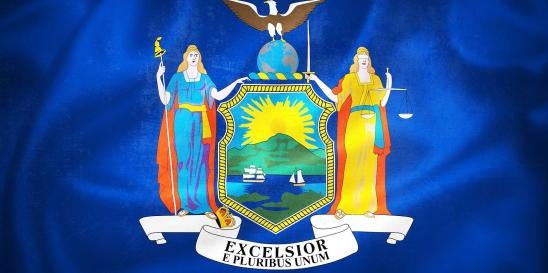![]()



LEGISLATION
This year brings significant legislative updates recently passed in New York that may impact your business operations. Three of these laws, and a recent Court of Appeals decision, introduce important changes that require attention and potential adjustment of your employment practices.
Worker’s Bill of Rights
Effective July 1, 2024, New York City employers must post and distribute a “Worker’s Bill of Rights” notice, informing employees of their rights under federal, state, and local workplace laws—regardless of immigration status. Some of these rights include: Paid Safe and Sick Leave, Minimum Wage, Temporary Schedule Changes, Fast Food Worker Rights, and right to organize.
Employers must provide this notice in English and any other language that is spoken as a primary language by at least five percent of their employees. Failing to meet notice and posting requirements could subject employers to a civil penalty of up to $500.
Social Media Privacy Law
New York’s social media privacy law became effective on March 12, 2024. This law prevents employers from requiring job applicants or employees to reveal their personal account credentials, or access to social media accounts—either during the hiring process or employment.
Further, employers cannot pressure or request an employee to open their personal social media accounts in the employer’s presence, and cannot copy any information, such as images, videos, or data, that is housed in employees’ personal social media accounts.
However, login details for accounts that are provided or required by employers for professional reasons are exempt from this rule.
Importantly, employers can still access workers’ personal social media accounts through public means—public social media content is not protected.
Increased Salary Thresholds for Exempt Workers
As of January 1, 2024/2025/2026, the minimum annual salary thresholds for employees classified as “exempt” from overtime under the executive or administrative exemption are/will be as follows:
For New York City, Nassau, Suffolk, and Westchester counties:
For the rest of New York:
In addition, beginning March 13, 2024, employees in New York State must be paid at least $1,300 per week ($67,600 per year) to be exempt under Article 6 of the New York Labor Law, which imposes several requirements on employers, including requirements to: (1) pay clerical or other non-manual workers no less frequently than semi-monthly; (2) obtain employees’ advance written consent before paying wages by direct deposit; and (3) provide benefits or wage supplements within 30 days after they become due.
These requirements do not apply to employees who both: (1) satisfy the applicable duties test for a bona fide executive, administrative, or professional capacity, and (2) meet the salary threshold.
The Freelance Isn’t Free Act (“FIFA”)
The Freelance Isn’t Free Act (“FIFA”) goes into effect in New York State on May 20, 2024, and imposes contract, payment, recordkeeping, and anti-discrimination requirements on companies that hire freelancers. This Act is closely aligned with the existing New York City Freelance Isn’t Free Act, which was implemented in New York City in 2017.
Some key provisions of the Act include:
Who Does It Affect?
A freelance worker under the Act is defined as any individual or organization that is contracted as an independent contractor for services worth $800 or more, individually or cumulatively, over 120 days.
COURTS EXPAND LIABILITY FOR EMPLOYERS
Syeed v. Bloomberg L.P.— Why Out-of-State Applicants Can Now Sue for Discrimination
On Thursday March 14, 2024, the New York Court of Appeals unanimously ruled that an out-of-state applicant seeking employment in New York is covered by New York’s anti-discrimination laws. The plaintiff, a resident of Washington, D.C., sought and was denied employment with Bloomberg in its New York office and claimed the denial was due to her sex and race. Although she did not live or work in New York, the Court of Appeals decided that she was protected from discrimination under New York law.
Employers in New York should be aware that as an effect of this ruling, nonresidents who were denied employment in the state can now bring claims under New York City and State anti-discrimination laws.
© 2024 Blank Rome LLP![]()
![]()


We collaborate with the world's leading lawyers to deliver news tailored for you. Sign Up to receive our free e-Newsbulletins
You are responsible for reading, understanding, and agreeing to the National Law Review's (NLR’s) and the National Law Forum LLC's Terms of Use and Privacy Policy before using the National Law Review website. The National Law Review is a free-to-use, no-log-in database of legal and business articles. The content and links on www.NatLawReview.com are intended for general information purposes only. Any legal analysis, legislative updates, or other content and links should not be construed as legal or professional advice or a substitute for such advice. No attorney-client or confidential relationship is formed by the transmission of information between you and the National Law Review website or any of the law firms, attorneys, or other professionals or organizations who include content on the National Law Review website. If you require legal or professional advice, kindly contact an attorney or other suitable professional advisor.
Some states have laws and ethical rules regarding solicitation and advertisement practices by attorneys and/or other professionals. The National Law Review is not a law firm nor is www.NatLawReview.com intended to be a referral service for attorneys and/or other professionals. The NLR does not wish, nor does it intend, to solicit the business of anyone or to refer anyone to an attorney or other professional. NLR does not answer legal questions nor will we refer you to an attorney or other professional if you request such information from us.
Under certain state laws, the following statements may be required on this website and we have included them in order to be in full compliance with these rules. The choice of a lawyer or other professional is an important decision and should not be based solely upon advertisements. Attorney Advertising Notice: Prior results do not guarantee a similar outcome. Statement in compliance with Texas Rules of Professional Conduct. Unless otherwise noted, attorneys are not certified by the Texas Board of Legal Specialization, nor can NLR attest to the accuracy of any notation of Legal Specialization or other Professional Credentials.
The National Law Review - National Law Forum LLC 2070 Green Bay Rd., Suite 178, Highland Park, IL 60035 Telephone (708) 357-3317 or toll-free (877) 357-3317. If you would like to contact us via email please click here.
Copyright ©2024 National Law Forum, LLC